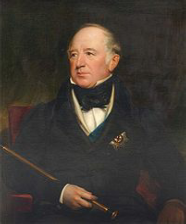



The Parish Church of St George the Martyr, Waterlooville

Some years ago, the St George’s annual Parish trip went to Arundel Castle where we learnt a little of the history of the Dukes of Norfolk. This series of articles follows on from that trip to put in greater detail some of the history behind this famous family. This month we cover the 12th Duke.
Sir Robert Howard, born 1385, died 1426
Sir John Howard 1st Duke, born 1420, died 1483 at Bosworth Field
Thomas Howard 2nd Duke, born 1444, died 1524
Thomas Howard 3rd Duke, born 1473, died 1554
Thomas Howard 4th Duke, born 1538, beheaded 1572 attainted
Sir Philip Howard Earl of Arundel, born 1557, died 1595 (Saint Philip)
Thomas Howard Earl of Arundel , born 1585, died 1646 (Collector Earl)
Henry Frederick Earl of Arundel, born 1608, died 1652
Thomas 5th Duke (from 1660), born 1627, died 1677
Henry 6th Duke, born 1629, died 1684
Henry 7th Duke, born 1655, died 1701
Thomas 8th Duke, born 1683, died 1732
Edward 9th Duke, born 1685, died 1777
Charles 10th Duke, born 1720, died 1786
Charles 11th Duke, born 1746, died 1815
Bernard Edward 12th Duke, born 1765, died 1842
Dying without issue the 11th duke was succeeded by his third cousin Bernard Edward Howard of Glossop, making this the third line of the family to inherit the title. The Glossop Howards, who still hold the title, have been the most consistently and strongly Catholic of all the descendants in the Howard line. For one hundred and fifty years they were faithful to an exiled dynasty and a proscribed faith. In the eighteenth century nearly every member of the family entered religion and lived abroad as nuns or priests. In each generation just one son married and carried on the line.
Bernard was born in Sheffield on 21st November 1765 and like many of his forebears was educated at Douai. He was a short man of quiet integrity in religion and politics, a cisalpine Catholic and a Whig. The greatest object of his life was Catholic emancipation and this explains his attachment to the Whig party which favoured emancipation. All his efforts in that direction were recorded by Creevey in his letters. Creevey was a bit of a toady and frequently dined with the Duke at his recently acquired property at Fornham Hall or his club, Brooke’s. He coined nicknames for the Duke such as Barney, Twitch or Scroop.
Immediately on George IVs succession in 1820, Bernard presented the King with a petition from himself and his fellow Catholics urging a repeal of the penal laws on the grounds that they ‘encouraged popular prejudices, perpetuated religious dissention and prevented general concord so essential to the Country’s happiness’. He assured the King that ‘English Catholics recognize the Crown alone and hold no allegiance to any foreign political power’. By the end of the decade the whole discriminatory paraphernalia of persecution was swept away, not by the Whigs as it turned out, but by Wellington and Peel.
On the death, in 1824, of his brother Lord Henry Thomas Howard-
He refused to sell the parliamentary seats within his gift but bestowed them on MPs he thought suitable. Rather different from most Peers of that time. In the 1830s the Duke received several honours, being appointed to the Privy Council, and in 1834 being made a Knight of the Garter. The Duke had an old fashioned attitude to most things and was a generous benefactor of poor Catholics, especially widows and paupers who were not able to benefit from many almshouses and charities which had a specific Anglican bias.
It is sad that such a good and well-
Bernard sold the family home at Worksop to the Duke of Newcastle for £375,000 and at Glossop he began the development of an entirely new town, Howard Town with a regular plan based on Norfolk Square, and with handsome buildings including the town hall and the Catholic Church. He was also one of the chief promoters of a new turnpike over the Snake Pass connecting Manchester and Glossop with Sheffield. At Arundel the Duke almost doubled the size of the estate by buying land to the south and extending the great park to the north west. He progressed an amazing amount of work within the town itself. He realigned roads to improve both the town and the castle grounds and repaired the Fitzalan chapel after many years of neglect. Strangely enough, he did little for the actual Castle which fell into some disrepair. He was keen to get rid of an old Anglican vicarage in Arundel which might have been difficult to lose had not God intervened and burnt it to the ground with a flash of lightning!
The 12th Duke died quietly at home in 1842 aged 77 and was succeeded by his only son Henry Charles as 13th Duke.
Tony Rice-
Winter Edition 2012
The Dukes of Norfolk
